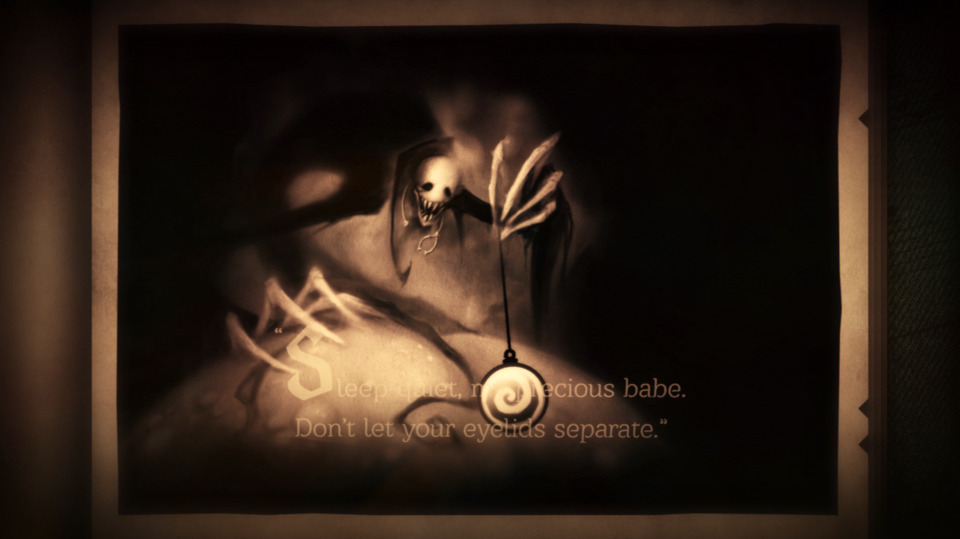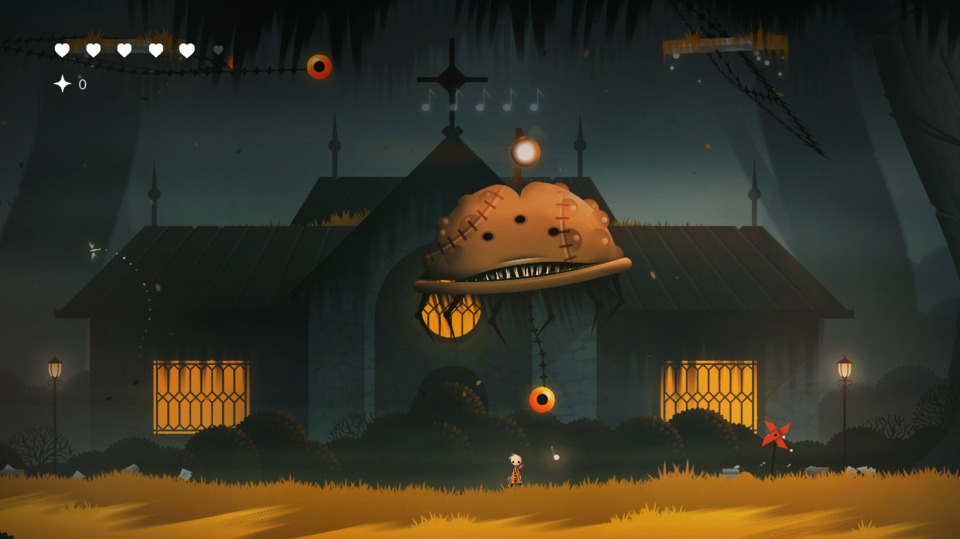Go! Go! GOTY! 2020: Game 7: Neversong
By Mento 0 Comments

- Game: Atmos Games's Neversong
- Release Month: May*.
- Quick Look: N/A.
- Started: 14/12.
- Completed: 14/12.
In the Devil's Kiss review, the second in this year's season of Go! Go! GOTY!, I talked about how veteran game parodiérs Dan Marshall and Ben Ward based their follow-up game Lair of the Clockwork God - temporarily removed from my itinerary, but recently added back in - on the premise that the Indie gaming scene is predominantly stacked with lugubrious and artistically aspirational puzzle-platformer games, a vogue started at the tail end of the '00s with the likes of Braid and several others. That trend has all but fizzled out by 2020, to what I imagine is some chagrin to Dan and Ben who probably wrote Lair of the Clockwork God's outline far earlier when the joke was still relevant. Turns out people actually are still making them though: Neversong is absolutely that type of game for better or worse, filled with momentum- and timing-based jumping puzzles and challenging boss fights that all act as the backdrop to one little orphan's quest to recover his beloved girlfriend from the sinister wraith Dr. Smile, and what might actually be happening beneath this familiar set-up.
Neversong is a quasi-sequel/reboot to a Flash game named Coma that creator Thomas Brush put together in his spare time as a student in 2010. He followed that up with the long-in-development Once Upon a Coma, which eventually morphed to become Neversong. Knowing that this game was a remake of a 2010 project made more sense in retrospect. Sadly, in the process of learning more about the source of the game after completing it (my usual practice, since I like to avoid spoilers whenever possible) I also found out that Neversong is actually a 2019 game: it launched on PS4 on the Halloween of last year. However, I'm counting it anyway because A) its European PS4 debut wasn't until the July of this year, which was months after its worldwide iOS and Steam launches in May, and B) I've already completed it so I might as well talk about it. I'll be sure to add an asterisk to it once I get around to my GOTY list.

So, Neversong. It's nothing we've not seen before, but in a thematic way I think that works in the game's favor: as a game led by a child surrounded solely by other children in a vaguely mid-20th century rural setting (the date gets a little murky for reasons that become clear later) one of the main themes is the doubled-edged sword that is nostalgia and the dangers that dwelling too much in the past can cause. Just like how protagonist Peet's adventures in his suddenly topsy-turvy hometown belies a deeper adult trauma at its core, being ten years out from the melancholy puzzle-platformer fad has made it the newest of video game genres to feel wistful about. (At least, I'm assuming that was a part of its successful Kickstarter push, though other factors - the game's distinctive, gothic, Edward Gorey-esque look and Brush's profile as the creator of Indie adventure hit Pinstripe - certainly contributed also.) The game's progress is demarcated by new songs obtained from bosses that, when played on the heroine's home piano, open up chests that contain new traversal items that allow Peet to explore more of the surrounding countryside. Despite this item-based progression system though, the game is markedly not an explormer: in fact, it's very linear barring a few collectibles you might want to backtrack for, largely for the sake of keeping its narrative trucking along. The other kids lend their personal takes on Peet's progress, but will often contribute in other ways: sometimes by giving him hints on how to complete upcoming, or being a component of those puzzles themselves. A few are there to give you fetch quests to complete, while others exist as eccentric red herrings to give the world a little more personality. I bring them up because the final act does something of interest to this little gang of yours, paying off the investment the player puts in learning their names and quirks early on.
Gameplay-wise, I was often at odds with Neversong, though the blame lies once again with my own inadequate hardware (specifically my PC, though the "hardware" that lives in my head isn't necessarily off the hook). I've noticed certain brands of game creator software really freak out if you don't have the adequate GPU chops to consistently run a game at its desired framerate, with certain physics-y objects like the climb-able and swing-able vines glitching into outer space and stymieing your progress until they eventually calm down or the player is forced to reload their last save. The lag introduced by these framerate problems also made the aforementioned momentum puzzles - the swinging on the vines as well as a skateboard that needs some run-up for larger jumps - quite unpleasant to deal with. Overall and exempt these issues, the platforming controls fine enough and I appreciated how clever some of its boss fights were, even if combat with normal enemies can be a bit mashy and unreliable. A very handy floating tool - an umbrella, naturally - would've been appreciated for the game's early jumping puzzles, though it's regrettably instead the last item in the game's progression chain.

On the whole, Neversong is every bit the type of emotionally-charged Indie puzzle-platformer that the industry has more or less moved away from in recent years. If you're still in the market for one of those, it's certainly serviceable and its peculiar artstyle, macabre sense of humor, and occasional flashes of gameplay ingenuity are additional feathers in its cap. The technical problems and some annoying puzzles towards the end meant my honeymoon period with the game concluded long before the game itself did, so I'm left mostly ambivalent about it despite those stated virtues. Ultimately: I didn't love it, but I would never say "never Neversong."
GOTY Verdict: Near the bottom of the list but not necessarily out of the running.
